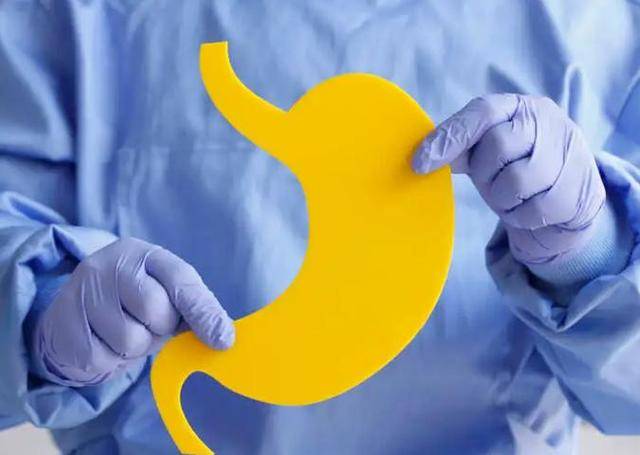Introduction: In today’s society, the incidence of stomach diseases has reached a very high level. According to relevant statistics, the incidence of stomach diseases in our country is about 76.23%, which can be described as “nine out of ten have stomach problems,” making it a common phenomenon.
The stomach, as the most vulnerable organ in the body, is often overlooked for its importance. We often adopt unhealthy habits and dietary habits that harm it.
However, only when problems occur in the stomach do people truly realize the importance of maintaining stomach health. By that time, many people may already find themselves in a situation of trying to remedy a situation that could have been prevented.
Therefore, doctors recommend that everyone should not wait until stomach diseases are imminent to start taking care of their stomach. Regardless of whether there are issues with the stomach, we should all prioritize the care of our stomach.
4 bad habits that harm the stomach, some people commit them every day
—Rich and heavy-flavored diet
For busy urban workers, eating takeout for lunch to fill the stomach and enjoying a full-flavored barbecue after work is considered the best way to relieve fatigue. Rich and heavy-flavored diets can bring joy, but in reality, your stomach is bearing the burden for you.
The high-fat content in rich and heavy-flavored foods increases the digestive burden on the stomach. Prolonged high-salt diet can easily damage the gastric mucosa, decrease gastric mucus secretion, leading to gastric ulcers or inflammation. Overeating spicy food can cause excessive secretion of gastric mucus, resulting in gastric swelling and congestion.
—Irregular eating habits
The human body has a biological clock for sleep, and stomach acid secretion also forms its biological clock. If dietary habits are regular, stomach acid secretion will also be regular. At fixed meal times, the stomach will automatically secrete gastric juice to aid in food digestion.
However, many people nowadays, due to busy work schedules, often eat irregularly, with uneven meals. This results in no food in the stomach to neutralize stomach acid, which over time will inevitably irritate the gastric mucosa, leading to chronic gastritis or gastric ulcers.
—Frequently taking gastrointestinal irritating medications
Non-steroidal anti-inflammatory drugs such as aspirin and ibuprofen can cause stomach irritation.
Many middle-aged and elderly people with cardiovascular diseases may need to take aspirin. If the stomach is not protected during medication, it can lead to gastric mucosal damage, followed by pain and bleeding.
—Not selecting fruits carefully
Fruits like persimmons, hawthorns, and dates contain tannins that react with stomach acid and fruit protein to form jelly-like substances that affect digestion.
So remember, do not eat a large amount of fruits like persimmons and hawthorns on an empty stomach.
In addition, many commonly consumed fruits can help repair the gastric mucosa and slow down the progression of stomach diseases, playing a crucial role in stomach health.
Doctors suggest: People with poor stomach health should regularly consume 4 types of fruits to help repair the gastric mucosa
1. Apples
Apples are a popular fruit, rich in nutrients. Eating steamed apples can help invigorate the spleen and stomach and protect the gastric mucosa.
If you have stomach problems, you may experience stomach pain and indigestion. Apples contain a variety of vitamins and minerals that can improve the gastrointestinal environment, enhance gastrointestinal immunity, and soluble dietary fiber that promotes healing and repair of damaged tissues, aiding in faster recovery.
2. Bananas
Bananas are a common fruit with high nutritional value. Eating bananas regularly can protect the gastric mucosa for people with stomach problems. Bananas contain serotonin, which can to some extent protect the gastric mucosa, reducing gastric acid secretion.
Moreover, bananas contain a chemical that can promote the growth of the gastric mucosa, thereby enhancing the resistance of gastric mucosa cells to acidity, providing protection and repair for the gastric mucosa.
3. Papayas
Many women know that papayas have beauty and skincare properties. Papayas contain two common enzymes that convert body fat into fatty acids, promoting food absorption and digestion.
Furthermore, papayas also contain a large amount of enzymes that aid in protein digestion, reducing the stimulation of food on the intestines and stomach, thereby preventing excessive gastric acid secretion and improving gastrointestinal health.
4. Grapefruits
Grapefruits are a highly popular fruit known for their soft, juicy, and refreshing pulp. Grapefruits are rich in dietary fiber that can eliminate carcinogens in the intestines, promote intestinal movement, help with bowel movements, and lower cholesterol, effectively preventing cardiovascular diseases.
If you have stomach issues, how should you adjust them?
[Dietary adjustment]
Avoid overeating and try to refrain from consuming spicy, greasy, and irritating foods. Increase the consumption of high-fiber foods like fruits and vegetables, maintain a balanced diet, and establish regular eating habits to reduce the burden on the stomach.
[Exercise]
Adequate physical activity can enhance gastrointestinal function and promote intestinal motility, such as jogging, skipping rope, but be mindful not to overexert yourself. Start gradually and adapt to the exercise level.
[Lifestyle adjustment]
If you have poor gastrointestinal health, cultivate good lifestyle habits by minimizing late nights, maintaining regular sleep schedules, and avoiding smoking and drinking.
[Medication control]
If you have stomach problems, use appropriate medications for adjustment, such as proton pump inhibitors like omeprazole, and motility-enhancing drugs like mosapride to nourish and regulate the stomach. Consult a doctor before taking medication and follow the doctor’s guidance.
After reading this article, do you have any thoughts to share? Feel free to leave a comment below.


